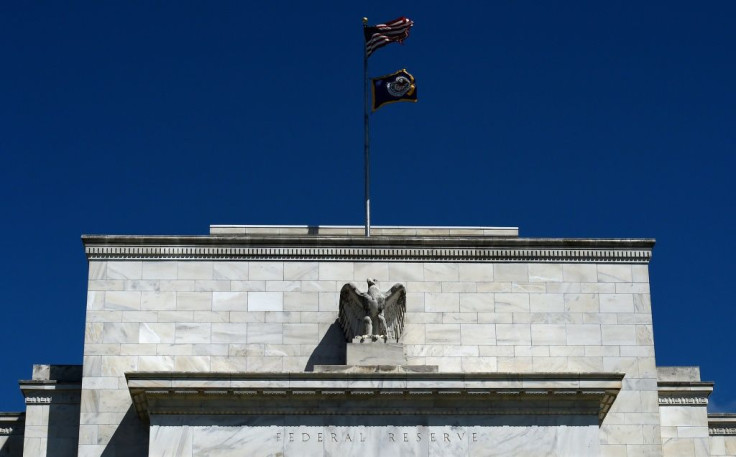Markets Fret Over Soaring Inflation, Energy Crunch
World stock markets wavered Tuesday as investors fretted over a brewing energy crisis, soaring inflation, signs of a slowdown in the global economy and an end to central bank financial support.
At the close of trade, stock prices were lower in New York after leading European and Asian markets had already ended the session in the red.
"Clearly, there's plenty of uncertainty in the markets that's been a drag on sentiment over the last couple of months but equally, investors are not conceding defeat easily," said OANDA analyst Craig Erlam.
Erlam said that a lack of alternatives meant that investors would continue to place their money in equity markets.
Nevertheless, that was "hardly a healthy reason," he cautioned.
"But as we've learned over the last decade or so, no matter how hard it can be to justify the apparently inflated levels in stock markets at times, or how long and severe the list of downside risks become, we never seem to be far away from a record high."
The IMF warned Tuesday that the ongoing hit from the Covid-19 pandemic and the failure to distribute vaccines worldwide is worsening the economic divide and darkening prospects for developing nations.
Global economic growth this year and next is expected to continue as the recovery solidifies broadly, but the overall figures mask large downgrades and ongoing struggles for some countries, the IMF said.
All eyes are now on the release this week of inflation data in the United States and China, where expectations are for high readings that will add pressure on central banks to tighten monetary policy.
The Federal Reserve has already signaled it will begin winding down its vast bond-buying program by the end of the year as it looks to prevent prices from running out of control and the economy from overheating.
Fed Vice Chair Richard Clarida, in a speech Tuesday, reiterated that stance, saying the world's largest economy was nearing completion of the "substantial further progress" test the central bank has set to determine when to back off its stimulus policies.
However another top US central banker, Atlanta Federal Reserve Bank President Raphael Bostic, warned that higher inflation could persist.
"I think inflation is likely to remain above two percent going forward. How far forward I cannot say. But upside risks are salient," he told the Peterson Institute of International Economics on Tuesday.
The Bank of England appears close to lifting borrowing costs sooner rather than later, while New Zealand and South Korea have already done so.
The pressure to act comes as energy prices hit multi-year or record highs and demand picks up ahead of the northern hemisphere winter, while supplies are limited as a result of pandemic lockdowns.
The issue is hitting countries around the world and increasing worries of a worldwide fuel squeeze, with US oil prices reaching a seven-year peak and Chinese coal prices also hitting a new record.

New York - Dow: DOWN 0.3 percent at 34,378.34 (close)
New York - S&P 500: DOWN 0.2 percent at 4,350.65 (close)
New York - Nasdaq: DOWN 0.1 percent at 14,465.92 (close)
London - FTSE 100: DOWN 0.2 percent at 7,130.69 (close)
Frankfurt - DAX: DOWN 0.3 percent at 15,146.87 (close)
Paris - CAC 40: DOWN 0.3 percent at 6,548.11 (close)
EURO STOXX 50: DOWN 0.4 percent at 4,055.09 (close)
Tokyo - Nikkei 225: DOWN 0.9 percent at 28,230.61 (close)
Hong Kong - Hang Seng Index: DOWN 1.4 percent at 24,962.59 (close)
Shanghai - Composite: DOWN 1.3 percent at 3,546.94 (close)
Euro/dollar: DOWN at $1.1530 from $1.1552 at 2100 GMT
Pound/dollar: DOWN at 1.3589 from $1.3595
Euro/pound: DOWN at 84.84 from 84.97 pence
Dollar/yen: UP at 113.62 yen from 113.31 yen
Brent North Sea crude: DOWN 0.2 percent at $83.42 per barrel
West Texas Intermediate: UP 0.1 percent at $80.64 per barrel
© Copyright AFP 2024. All rights reserved.











